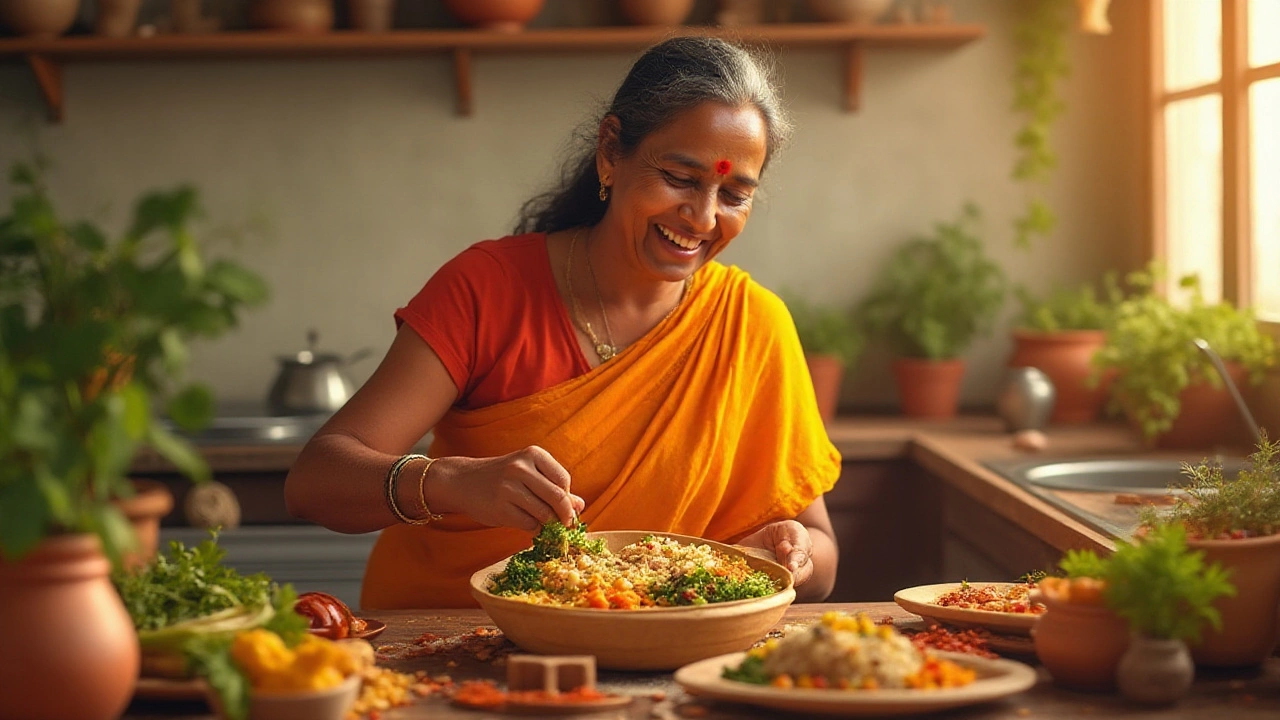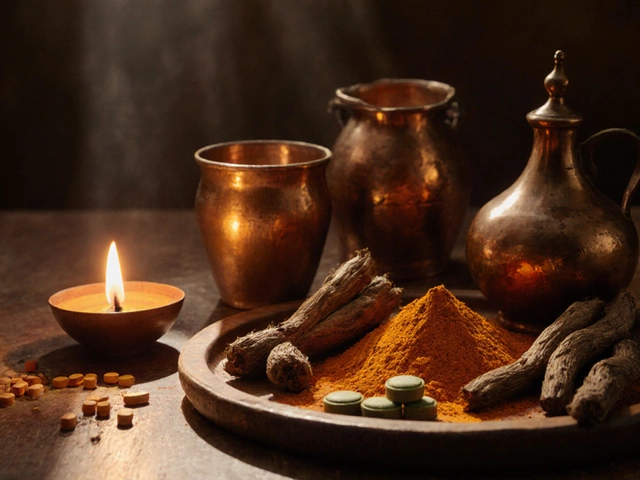Discover the best foods and eating habits for a 55-year-old woman aiming to lose weight. Get practical, science-backed nutrition tips tailored to women in midlife.
Read MoreWomen’s Nutrition Over 50: Simple, Science‑Backed Tips
Turning 50 doesn’t mean you have to give up flavor or energy. Your body changes, but the right foods can keep you feeling strong, bright, and ready for anything. Below are practical ideas you can add to your grocery list right now.
Focus on Bone‑Boosting Nutrients
Calcium and vitamin D are the stars for bone health. A cup of low‑fat milk, a serving of paneer, or fortified soy milk can give you the calcium you need. Pair it with sunlight or a vitamin D supplement to help your body absorb the mineral. If dairy isn’t your thing, try sardines, almonds, or leafy greens like kale and bok choy. Aim for at least three servings of calcium‑rich foods each day.
Balance Protein, Fiber, and Healthy Fats
Protein helps preserve muscle mass, which naturally declines after 50. Include lean chicken, fish, lentils, or chickpeas in each meal. Fiber keeps digestion smooth and can lower cholesterol; go for whole grains, fruits, and vegetables. Healthy fats from nuts, seeds, avocado, and olive oil support heart health and hormone balance. A simple plate might be grilled salmon, quinoa, and a side of sautéed spinach with a drizzle of olive oil.
Don’t forget to stay hydrated. Water supports every cell, and dehydration can worsen joint pain and fatigue. Aim for eight glasses a day, and add a splash of lemon or cucumber for flavor without extra calories.
When it comes to carbs, choose complex over refined. Whole‑grain roti, brown rice, millets, and oats release energy slowly, keeping blood sugar stable. This matters especially if you’re navigating menopause‑related weight changes. A bowl of oatmeal topped with berries and a spoonful of flaxseed makes a great breakfast that hits protein, fiber, and omega‑3s.
Mindful eating also matters. Eat slowly, chew well, and listen to your hunger cues. This helps avoid overeating and supports better digestion. If you find yourself reaching for snacks late at night, try a small handful of walnuts or a cup of warm milk with turmeric—both are soothing and nutritious.
Finally, consider a daily multivitamin that includes B‑vitamins, magnesium, and zinc. These trace minerals support energy production and immune function, which can dip as we age. Always check with a doctor before starting any supplement, especially if you take medication.
With these easy changes—more calcium, regular protein, plenty of fiber, healthy fats, and good hydration—you’ll set a solid foundation for health after 50. You don’t need a drastic overhaul; just a few smart swaps each week can make a big difference.





